The ancient Celts were a proud and brave people. Many historical accounts tell of their fearlessness in battle, with some tribes waging war naked and unperturbed about their safety. Although tribal-centric, they prospered because they were pretty hospitable when they were not in the thralls of warring with each other and expanding their territory.
Several Celtic leaders stood out in history for their bravery, cunning, and heroic stand against the foreign invading forces. However, having no central authoritarian figure they respected, various Celtic tribes fell piecemeal to the advancing armies. Only when faced with such adversity did the tribes loosely band together, but it was a case of being too little, too late. Although the fabric of Celtic society persevered through time, their territories fell to better-equipped and more disciplined armies that sought to expand their influence and power.
Here are some of the reasons why such proud people fell.
Julius Caesar
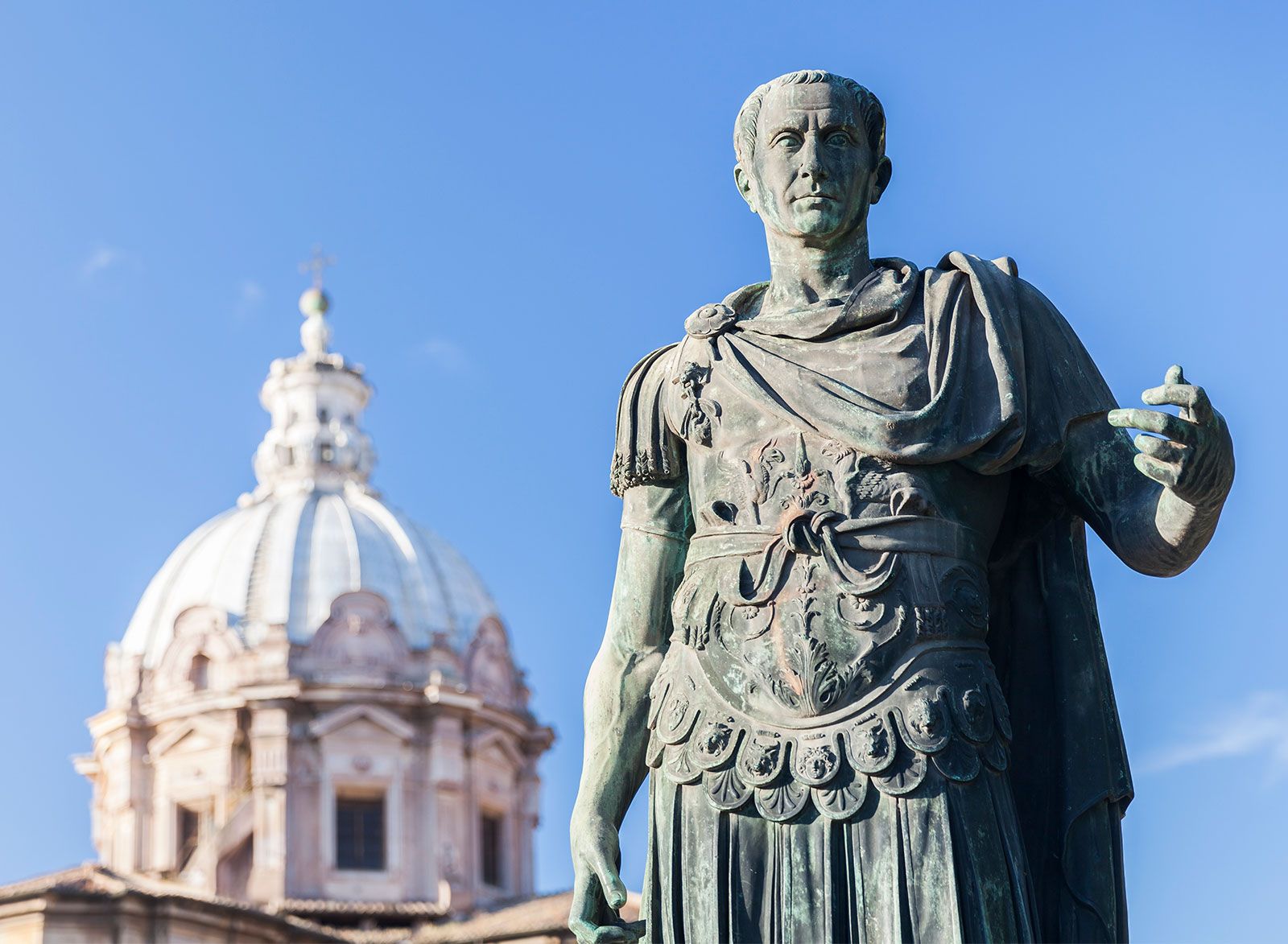
Gaius Julius Caesar served Rome as a general and a statesman. Born on the 12th of July 100 BC to a patrician family, Gaius Julius Caesar, and Aurelia. His namesake father was a governor of the province of Asia, while his mother was also a descendant of an influential Roman family.
He led the Roman forces against the Celts during the Gallic Wars, which spanned 58 BC to 50 BC. Although it was a bloody and brutally protracted war, he succeeded in subduing the Celts, who Vercingetorix led. This helped boost his political stature and influence. He also won the Roman Civil War, which led to the dissolution of the Roman Republic and the rise of the Roman Empire with him as a dictator.
The casualties during the Gallic Wars contributed to the Celts’ decline as they struggled to find common ground with the Romans.
Civil
Gallic Wars

The Romans waged the Gallic Wars against the Celts between 58 BC and 50 BC. Led by then-general Julius Caesar, the Roman forces subdued the Gallic warriors led by Vercingetorix in the Battle of Alesia in 52 BC. This armed engagement marked the last major conflict during the brutally protracted war. Although Vercingetorix was familiar with the local topography and managed to raise a substantial number of warriors, Caesar’s tactics overwhelmed the Gallic army, leading to Vercingetorix’s subsequent surrender.
While Caesar sought to portray the invasion as a preemptive strike against the Celts, most historians agree that it was an act that Caesar did to boost his political career and a way to pay off his debts.
While the Gallic Wars resulted in heavy casualties among the Roman forces, their success meant they secured the natural border to the Rhine river, which had strategic importance to their expansion and civilization.
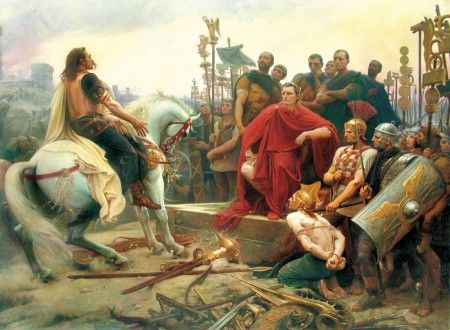
The Celtic tribes were fiercely independent and innately didn’t trust each other. Some historians point out these factors as among the reasons why they failed to successfully defend their territory against the advance of the Roman forces during the Gallic Wars and other subsequent foreign incursions.
They didn’t have a central authority figure which contributed to their downfall. The Celts’ fierce independence and loyalty to their tribes typically didn’t allow them to unite against a common foe, even when they saw that they were outnumbered and outmaneuvered. Against the incursion led by then Roman general Julius Caesar, Vercingetorix managed to convince the tribes to form a loose coalition against the foreigners. However, it was a case of far too little, too late as the mighty Roman army, led by a brilliant tactician, defeated them in the Battle of Alesia, which was the final major battle that closed Caesar’s Gallic campaign.
Infighting between and among Celtic tribes

There were numerous Celtic tribes in Western Europe during those times, and each tribe was fiercely independent and renowned for its prowess in battle. However, with their independence and their culture, they only typically recognized only their tribal chieftains.
Legendary for being easily provoked, Celtic tribes would fight amongst themselves from time to time, which led to them not being a united society. Although they would coalesce when faced with a superior adversary, especially during the Gallic Wars, foreign incursions would typically conquer each tribe piecemeal and move on to the next. This made it easy for some forces to capture territory and establish their encampments.
This infighting can be attributed to the Celts’ decline as their seeming inability to unite under one banner until it was too little, too late, would prove costly, especially in the Battle of Alesia.
Emperor Claudius

Emperor Claudius, whose full name was Tiberius Clausius Caesar Augustus Germanicus, ruled the Roman Empire from 41 AD to 54 AD. During his reign, the Empire successfully invaded Britain and parts of Africa and the Middle East.
Although he suffered from several ailments and illnesses, his physical condition greatly improved upon his installation as the Roman Emperor by the Praetorian Guard, who murdered Emperor Caligula and his wife.
While the Roman Senate viewed him as a weak leader, he tried to appease them by embarking on the annexation of Britain. He sent a considerable force of war elephants and 40,000 troops to conquer Britain in 43 AD. Their forces started picking off the tribes, finally capturing the rebel leader Caratacus, who was delivered to him in chains by the Brigantes’ Queen Cartimandua. This success gave the Romans the foothold they needed to annex Britain and subdue most of the Celts.
Roman military might
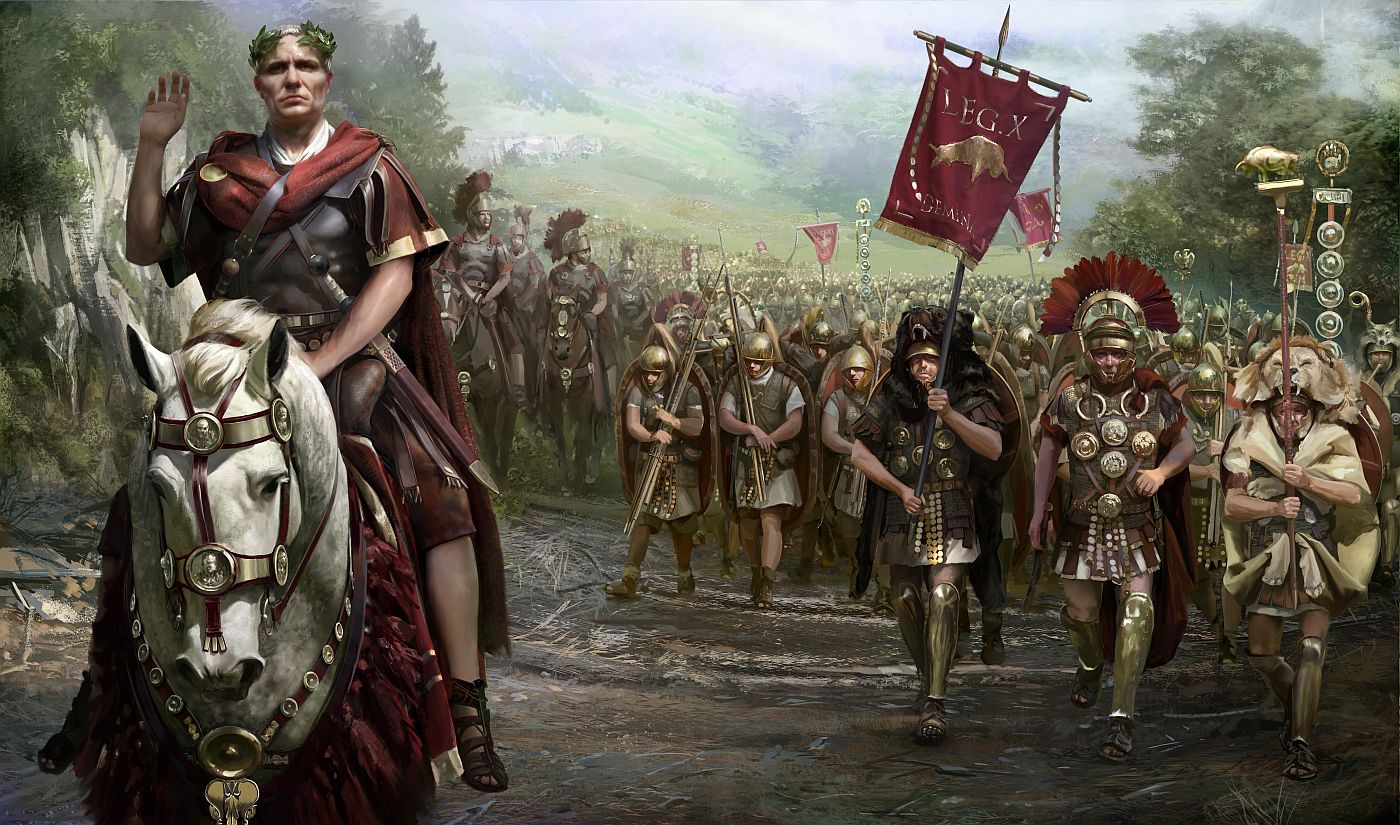
The rise and might of the Roman military helped bring the downfall of the Celts. Although the Celts were often described as brutal warriors, some historians even state that a few tribes fought naked, unmindful of their safety; they were considerably rag-tag compared to the disciplined and highly-trained Roman army.
Led by various generals, the Roman army conquered and defended their territory against incursions from various forces on different fronts of the Roman Empire. As the empire expanded, they had access to more warriors from their conquered tribes. These warriors augmented the existing regiments and formed an integral part of the army’s cavalry or infantry divisions. Their battle-tested readiness and hardiness, coupled with their desire for spoils, helped propel the army to victory. Although they may have also lost several battles along the way, they usually emerged victorious because of their tenacity and number.
Better weapons and tactics
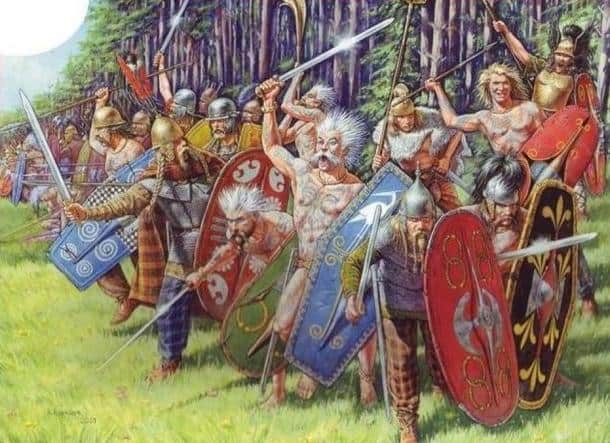
Although the Celts were considered fearless warriors and seemingly entered the battlefield in a mystical stupor, they suffered losses from better equipped and trained armies.
The Celts armed themselves for battle with long swords, spears, and large rectangular or oval shields. Their armies also used chariots, cavalry, slingers, and other weapons to keep their enemies at bay. Although they threatened their neighbors during what historians call the Celtic Migration, they fell to the more disciplined and better-equipped armies they faced. Although they may also have better knowledge about the geography as they employed guerilla tactics, most Celtic leaders fell during set-piece battles.
When Celtic armies fell to their conquerors, some became mercenaries and a part of the larger marauding army. Their knowledge about the other tribes’ capabilities probably led to the piecemeal advance of the invaders and their subsequent assimilation into the foreigners’ society.
Socio-cultural diversity
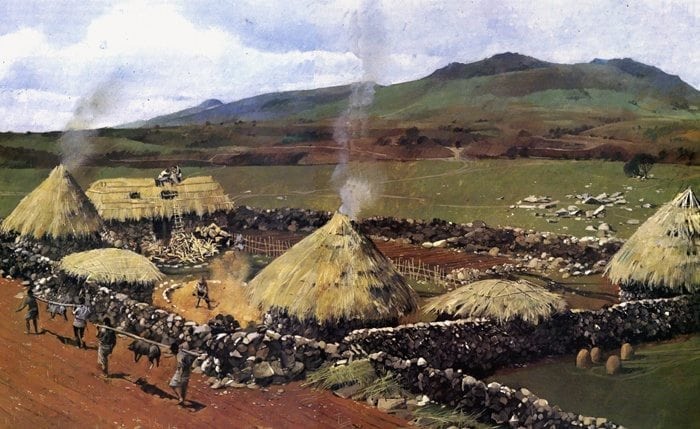
As the Celtic tribes were fiercely independent of each other and would band and collaborate if there was a threat to their safety and territory, their society evolved gradually. Although historians cite different societal classes – the warrior aristocracy, the intellectuals, and the rest of the population – and differing governance options, their society was quite developed for the time. They were hospitable and domestic when not in the thralls of raiding and war. They traded and blended with other people, and they may have cohabitated and allowed other people to immerse themselves in their communities.
Their societal diversity may have led to the acceptance and spread of different philosophies, which may have caused their chieftains to accommodate peacefully political maneuverings and overtures of the Romans and other similar forces. Although it may have saved their societal fabric, their willingness to accept foreigners into their society contributed to their downfall.
Political naivety
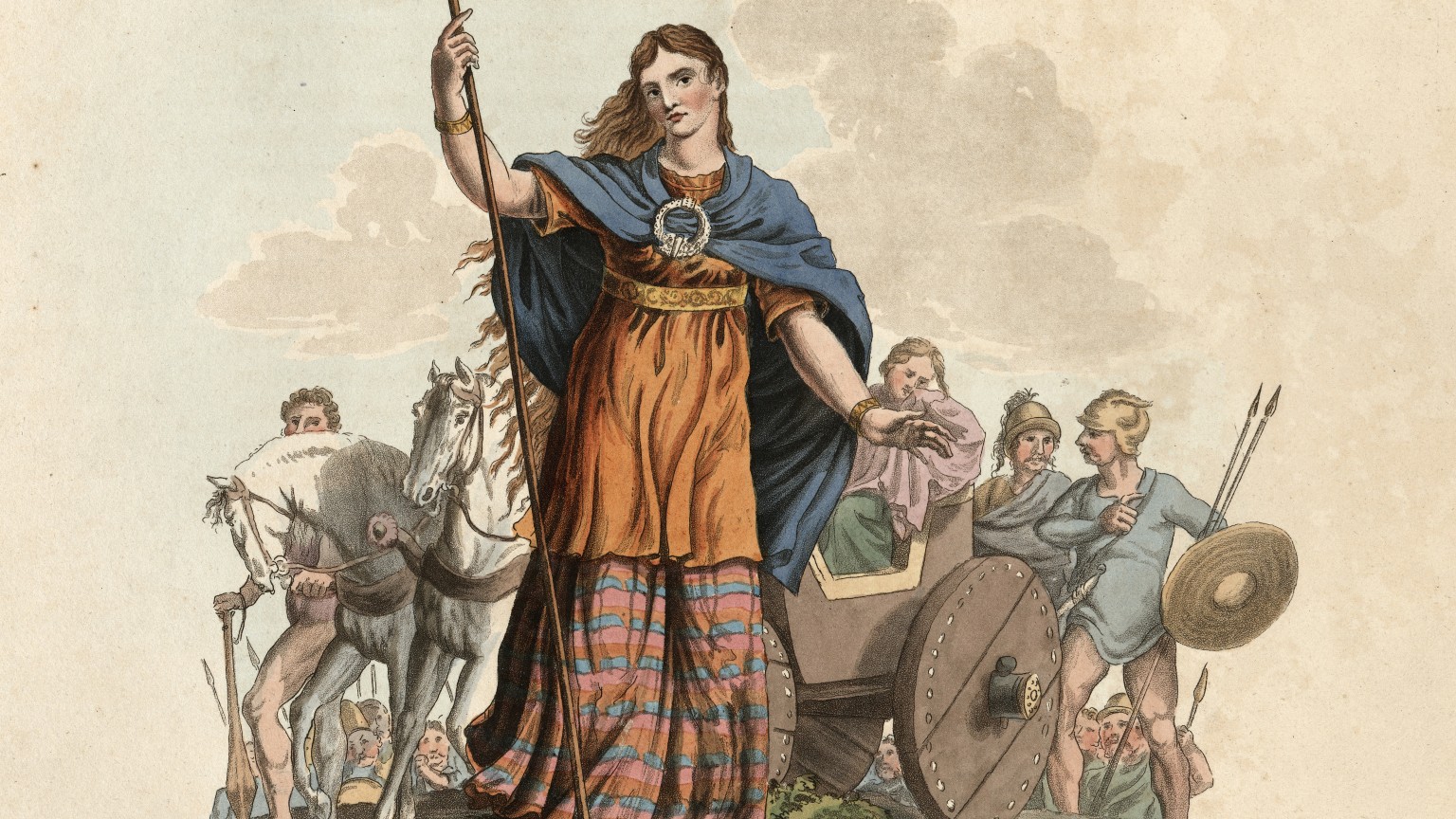
The Romans set foot in Britain, and although eleven Celt kings welcomed them openly and enjoyed their protection and allegiance, this political tactic proved to be the reason for their downfall.
A prime example of political naivety would be the case of King Prasagatus of the Iceni tribe. He had an existing will that wasn’t upheld by the Romans, although it willed his kingdom to his daughters and the Roman emperor. Instead, they flogged Queen Boudica and raped his daughters as they annexed his territory.
Boudica convinced the Trinovantes, the Iceni, and other Celtic tribes to revolt. They met Gaius Suetonius Paulinus in the field of battle, whom they outnumbered. However, despite severe casualties, the Romans still thwarted the Celts. It marked the end of the Boudican Rebellion and consolidated Roman rule in the southern English regions, although the northern regions still proved volatile.
Germanic and Slavic tribes and Huns

After the Romans conquered the Celts, they also tried to fight off the advances of various Germanic tribes, Slavs and Huns. These incursions happened during the Migration Period, which historians pegged was between 300 AD to 600 AD.
The incursions led to the downfall of the Roman Empire, and the resulting lack of central authority to govern the territory also led to the conquest of the Celtic regions. Various Germanic tribes, Vandals, Anglo-Saxons, Franks and other tribes went westward as wandering war bands or as part of a larger expeditionary force, leading to their subsequent inhabitation of Celtic territory. Although the Celts might have commingled with them and assimilated into their society, the massive wave of migration helped bring the downfall of the Celts as a whole.